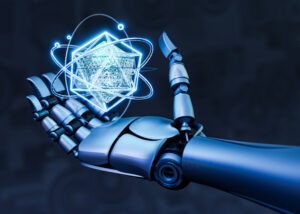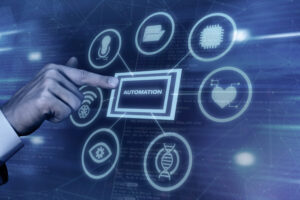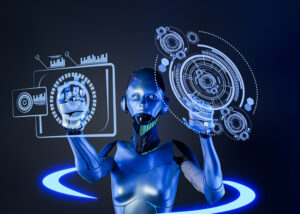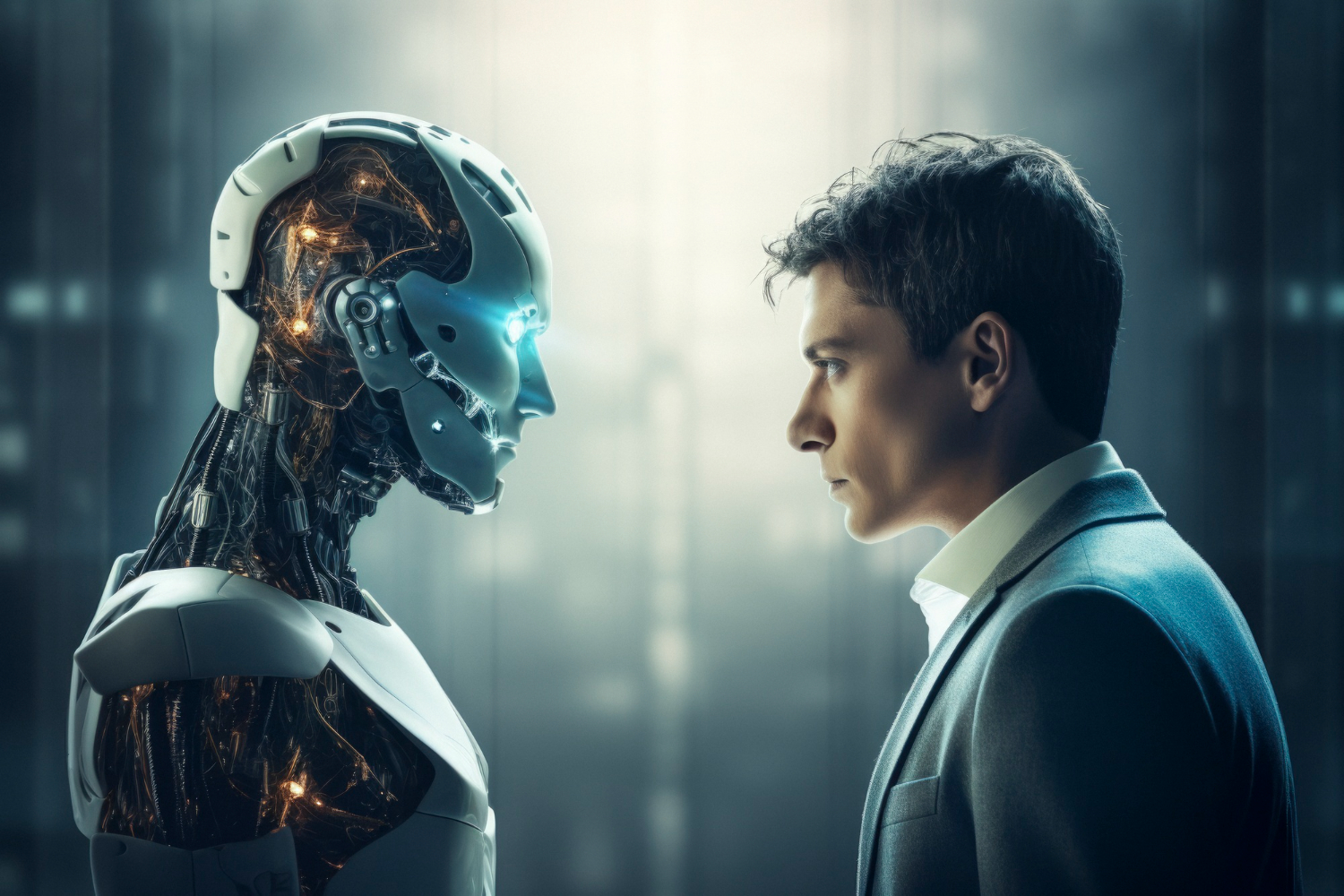Introduction
Artificial Intelligence (AI) has emerged as one of the most transformative technologies of the 21st century. From self-driving cars to intelligent virtual assistants, AI is reshaping the way we interact with the world. Defined as the simulation of human intelligence processes by machines, particularly computer systems, AI encompasses a variety of capabilities, including learning, reasoning, problem-solving, perception, and language understanding. This article delves into the multifaceted world of AI, exploring its history, types, applications, benefits, challenges, and future trends.
History of Artificial Intelligence
Early Beginnings
The concept of artificial intelligence can be traced back to ancient history, where myths and legends featured artificial beings endowed with intelligence. However, the formal study of AI began in the mid-20th century. The term “artificial intelligence” was coined in 1956 during the Dartmouth Conference, organized by John McCarthy, Marvin Minsky, Nathaniel Rochester, and Claude Shannon. This conference marked the birth of AI as a field of study.

The Growth of AI Research
In the 1960s and 1970s, significant advancements were made in AI research, including the development of early neural networks and natural language processing systems. The Logic Theorist, developed by Allen Newell and Herbert A. Simon, is often considered the first AI program, capable of solving mathematical problems.
The AI Winter
Despite early successes, the field of AI faced challenges in the 1970s and 1980s, leading to what is known as the “AI winter.” Funding and interest in AI research dwindled due to unmet expectations and the limitations of existing technologies. However, the resurgence of interest in AI in the late 1990s and early 2000s was fueled by advancements in machine learning, increased computational power, and the availability of large datasets.
Modern AI Era
Today, AI is experiencing an unprecedented boom, driven by breakthroughs in deep learning, natural language processing, and reinforcement learning. Companies like Google, Facebook, and IBM are investing heavily in AI research, leading to innovations that are revolutionizing various industries.
Types of Artificial Intelligence
AI can be categorized into several types based on its capabilities and functionalities. Understanding these categories helps clarify the scope and potential of AI technologies.
Narrow AI vs. General AI
- Narrow AI: Also known as weak AI, narrow AI systems are designed to perform specific tasks. They excel in a single domain, such as image recognition, language translation, or playing board games. Examples include virtual assistants like Siri and Alexa, recommendation systems, and autonomous vehicles.
- General AI: General AI, or strong AI, refers to a theoretical form of AI that possesses the ability to understand, learn, and apply knowledge across various domains, similar to human intelligence. While general AI remains a goal for researchers, it has not yet been achieved.
Reactive Machines
Reactive machines are the simplest form of AI systems. They do not have memory or the ability to learn from past experiences. Instead, they react to specific inputs with predetermined responses. A well-known example is IBM’s Deep Blue, which defeated chess champion Garry Kasparov in 1997.
Limited Memory
Limited memory AI systems can learn from historical data and improve their performance over time. These systems use past experiences to inform future decisions. Many current AI applications, such as self-driving cars and recommendation algorithms, fall into this category.
Theory of Mind
Theory of mind AI is an advanced concept that refers to AI systems capable of understanding human emotions, beliefs, and intentions. This type of AI is still in the research phase and aims to enhance human-computer interaction by enabling machines to comprehend social cues.
Self-aware AI
Self-aware AI represents the pinnacle of AI development, where machines possess consciousness and self-awareness. This concept remains speculative and raises profound ethical questions about the nature of consciousness and the rights of sentient beings.
Applications of Artificial Intelligence
AI has found applications in various sectors, transforming industries and enhancing efficiency. Here are some key areas where AI is making a significant impact:

Healthcare
In the healthcare sector, AI is revolutionizing diagnostics, treatment planning, and patient care. Machine learning algorithms analyze medical images, detect diseases, and predict patient outcomes. For example, AI systems can identify early signs of diseases like cancer by analyzing X-rays and MRIs with remarkable accuracy. Additionally, AI-powered chatbots provide patients with instant medical advice and support.
Finance
The finance industry leverages AI for fraud detection, risk assessment, and algorithmic trading. AI algorithms analyze transaction patterns to identify suspicious activities, helping prevent financial fraud. Furthermore, robo-advisors use AI to provide personalized investment advice based on individual financial goals and risk tolerance.
Transportation
AI is at the forefront of transforming transportation through the development of autonomous vehicles. Self-driving cars use AI to navigate, interpret sensor data, and make real-time decisions. AI also enhances traffic management systems, optimizing traffic flow and reducing congestion in urban areas.
Entertainment
In the entertainment industry, AI plays a crucial role in content creation and recommendation systems. Streaming platforms like Netflix and Spotify utilize AI algorithms to analyze user preferences and behavior, delivering personalized content recommendations. AI-generated music and art are also gaining popularity, showcasing the creative potential of AI technologies.
Education
AI is reshaping education by providing personalized learning experiences. Intelligent tutoring systems adapt to individual student needs, offering tailored resources and feedback. AI-powered tools also assist educators in assessing student performance and identifying areas for improvement.
Benefits of Artificial Intelligence
The advantages of AI are numerous and wide-ranging, contributing to increased efficiency, productivity, and innovation across various sectors.
Efficiency and Automation
AI systems can automate repetitive tasks, freeing human workers to focus on more complex and creative endeavors. This leads to increased productivity and efficiency in the workplace. For example, AI-powered chatbots handle customer inquiries, allowing human agents to concentrate on more intricate issues.
Enhanced Data Analysis
AI excels at processing vast amounts of data quickly and accurately. Machine learning algorithms can identify patterns and trends in data that would be challenging for humans to discern. This capability enables organizations to make data-driven decisions and gain valuable insights.
Improved Decision-Making
AI systems provide valuable recommendations based on data analysis, enhancing decision-making processes. Businesses can leverage AI to optimize operations, allocate resources effectively, and identify new market opportunities.
Personalization
AI enables personalized experiences by analyzing user preferences and behavior. From targeted marketing campaigns to customized product recommendations, AI enhances customer satisfaction and engagement.
Innovation
AI drives innovation by enabling the development of new products and services. Businesses can leverage AI technologies to create solutions that address emerging challenges and meet evolving customer needs.
Drawbacks and Ethical Considerations
While AI offers numerous benefits, it also presents challenges and ethical dilemmas that must be addressed.
Job Displacement
One of the most significant concerns surrounding AI is job displacement. Automation may lead to the loss of jobs in certain sectors, particularly those involving routine tasks. Workers in industries such as manufacturing, transportation, and customer service may face challenges as AI systems take over their roles.
Privacy Concerns
The use of AI raises privacy concerns, particularly in areas such as surveillance and data collection. AI systems often rely on vast amounts of personal data to function effectively, raising questions about how this data is collected, stored, and used.
Bias in AI Algorithms
AI systems are only as good as the data they are trained on. If the training data contains biases, the AI algorithms may perpetuate these biases, leading to unfair outcomes. For example, biased algorithms in hiring processes can result in discrimination against certain demographic groups.
Ethical Dilemmas
The deployment of AI raises ethical questions regarding accountability and responsibility. For instance, in the case of autonomous vehicles, who is responsible for accidents caused by AI systems? Addressing these ethical dilemmas is crucial to ensuring the responsible development and deployment of AI technologies.
The Future of Artificial Intelligence
The future of AI is both promising and uncertain. As technology continues to evolve, several trends and predictions are emerging.

Trends and Predictions
- Increased Integration: AI will become increasingly integrated into everyday life, with more applications in various sectors. From smart homes to healthcare, AI will play a central role in enhancing efficiency and convenience.
- Advancements in Natural Language Processing: Natural language processing (NLP) will continue to improve, enabling more sophisticated interactions between humans and machines. AI systems will become better at understanding context, sentiment, and nuances in language.
- Collaboration between Humans and AI: The future will likely see a collaborative relationship between humans and AI. Rather than replacing human workers, AI will augment their capabilities, allowing for enhanced creativity and problem-solving.
- Ethical AI Development: As AI technologies become more pervasive, there will be a growing emphasis on ethical AI development. Organizations and governments will need to establish guidelines and regulations to ensure responsible AI practices.
- Focus on Explainability: As AI systems become more complex, the need for explainability will increase. Stakeholders will demand transparency regarding how AI algorithms make decisions, particularly in critical areas such as healthcare and criminal justice.
Potential Impact on Society
The impact of AI on society will be profound. As AI technologies continue to advance, they will reshape industries, economies, and daily life. The potential for increased productivity and innovation is significant, but it must be balanced with ethical considerations and social responsibility.
The Role of Regulation and Governance
To harness the benefits of AI while mitigating its risks, effective regulation and governance will be essential. Policymakers will need to collaborate with industry leaders, researchers, and ethicists to develop frameworks that promote responsible AI development and deployment.
Conclusion
Artificial Intelligence is a powerful force that is transforming the world as we know it. From healthcare to finance, AI is enhancing efficiency, improving decision-making, and driving innovation. However, it also presents challenges and ethical dilemmas that must be addressed to ensure its responsible use. As we move into the future, a collaborative effort between technologists, policymakers, and society will be crucial in shaping the trajectory of AI and maximizing its positive impact on humanity.


2 thoughts on “Artificial Intelligence: Transforming the Future”